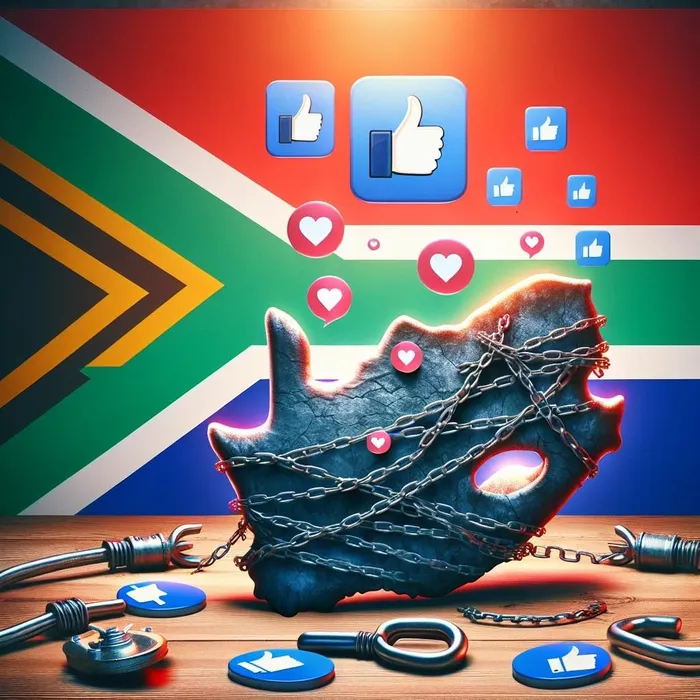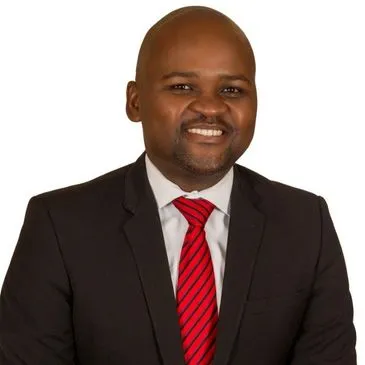The dangers of influencer marketing: A call for accountability in South Africa

Influencers can play a positive role. They can inspire, educate and connect young people to real opportunities. But if left unchecked, they can also become tools of manipulation, trafficking and social unrest.
Image: AI LAB
In today’s world, influence is a form of currency. Young people often trust social media influencers more than traditional advertising or even official government communication. They see them as relatable, aspirational and authentic. This trust has turned influencer marketing into one of the most powerful tools of persuasion in the modern era. But when influence is left unchecked and accountability is missing, the same platforms that inspire dreams can also create danger.
South Africa is now facing this reality. The latest controversy is the Russian “Alabuga Start” programme, which was promoted on social media as a chance for young South Africans to study and work abroad. Behind the glossy Instagram reels and persuasive TikTok videos, however, are disturbing allegations of human trafficking and forced labour. For a country where youth unemployment sits above 45 percent, this is a cruel form of exploitation. It takes advantage of desperation by dangling the false promise of opportunity. This is not an isolated case. It points to a deeper problem in how influence is sold, abused and too often left unregulated.
When influence turns dangerous
Globally, we have seen what happens when influencer-driven campaigns collapse. The Fyre Festival in 2017 is one of the most infamous examples. Celebrities like Kendall Jenner and Bella Hadid sold the image of a luxury music experience in the Bahamas that simply did not exist. Attendees were left stranded with no proper food or shelter. Lawsuits followed, reputations were destroyed, and the festival became a cautionary tale.
More recently, the hype around cryptocurrencies and NFTs saw many influencers promoting schemes that later collapsed. Kim Kardashian was fined over a million dollars in the United States for failing to disclose that she was paid to promote a worthless token. Logan Paul and others are still facing lawsuits for misleading their followers. These cases highlight a simple truth: influence without responsibility is dangerous. And when jobs, savings or futures are on the line, the cost is not just reputational, it is deeply human.
South Africa’s lessons in digital manipulation
Here at home, we know the risks all too well. The July 2021 unrest caused more than R50 billion in economic damage and cost over 350 lives. Investigations later showed how social media influencers, amplified calls for protest that spiralled into looting and violence.
This episode shows that influence is not limited to selling clothes or beauty products. In the wrong hands, it can be used to drive political mobilisation and even destabilise society. The unrest was not just a political failure; it was also a digital trust crisis. Once social media is weaponised, containing the damage becomes almost impossible.
There are also smaller but still important examples. Local influencers have promoted “detox teas” and slimming products that carry health risks. Others were caught in the storm around the proposed R1 billion South African Tourism sponsorship deal with Tottenham Hotspur in 2023. By defending or criticising the plan, they tied their credibility to a highly divisive issue. These moments remind us that influencer marketing in South Africa is not just a light entertainment matter. It carries real consequences for livelihoods, politics and national reputation.
Why young people are especially vulnerable
The risks are made worse by the desperation of South Africa’s youth. With almost half of young people unemployed, opportunities to work or study abroad seem incredibly attractive. When such opportunities are packaged in the friendly, familiar voice of an influencer on Instagram or TikTok, they feel even more convincing.
This is exactly the tactic used in the Alabuga programme. By creating an image of progress and prosperity, and pushing it through persuasive online personalities, the scheme was able to attract young South Africans who genuinely believed they were securing a better future. Many later discovered they had walked into dangerous, exploitative conditions.
It is a painful reminder that influence today is not just about shopping choices. It shapes life decisions about careers, migration and survival.
Building accountability and digital trust
So how do we prevent the next Alabuga, the next Fyre Festival or even another July 2021? The answer lies in accountability and rebuilding trust in the digital space.
- Influencer responsibility. If you use your platform to persuade, you carry a duty of care. That means verifying opportunities, disclosing when you are paid, and understanding that your reach has consequences.
- Regulation and oversight. Laws around influencer advertising must be tightened, especially in sensitive areas likejobs, finance and health. The Advertising Regulatory Board has a role to play, but so do labour and security authorities.
- Platform action. Social media companies should act quickly when harmful or misleading content is flagged. They should also work with regulators to make sure false promotions are removed before they cause real harm.
- Youth empowerment. Digital literacy should be treated as a basic skill. Young people must learn to verify job offers through embassies, the Department of Labour, or reputable agencies. The golden rule is simple: if it looks too good to be true online, it probably is.
Conclusion: Influence must come with responsibility
South Africa is sitting at the intersection of two crises: sky-high youth unemployment and collapsing trust in digital platforms. Together, they create the perfect breeding ground for exploitation by opportunists at home and abroad.
Influencers can play a positive role. They can inspire, educate and connect young people to real opportunities. But if left unchecked, they can also become tools of manipulation, trafficking and social unrest.
The Alabuga case should be a wake-up call for all of us. Influence without responsibility is reckless and dangerous. Protecting our youth means building a culture of accountability in digital marketing, stronger oversight from regulators, and a commitment to rebuilding trust online.
Our young people deserve dreams that lead to dignity, not danger.

Tshepo Matseba is the Managing Director at Reputation 1st Group.
Image: Supplied
Tshepo Matseba is the Managing Director at Reputation 1st Group, Strategic Partner at Ebony+Ivory Integrated Communication Agency, and former President of the Public Relations Institute of Southern Africa (PRISA). He writes in his personal capacity.
BUSINESS REPORT